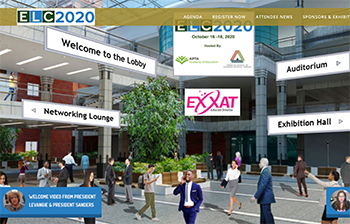
Government Performance Can Improve Trust

This week, the American Council for Technology and Industry Advisory Council (ACT-IAC) held its flagship annual event, the Executive Leadership Conference (#ELC2020), moved to a virtual environment. As always, ELC brought government and industry leaders together for several days of exchanges on content about the direction of government and how technology can help drive government improvement in partnership with industry. Of course, this year’s session was entirely virtual, and the content will remain active for months to come.
Moreover, as happens every four years, ELC takes place immediately prior to a Presidential election. One of the closing sessions at ELC discussed the findings and recommendations of Delivering Outcomes, Building Trust -- ACT-IAC’s “Agenda 2021” Presidential election project -- which put forward insights and recommendations for how new government leaders and supporting stakeholders can leverage innovation to raise the performance bar for their agencies. I had the honor of co-chairing this initiative with a stellar group of former government leaders, and the findings reflected insights from a broader group of dedicated experts from the ACT-IAC member ranks in government and industry.
The ELC panel reiterated the basic themes of the report: agencies can leverage technology to deliver better outcomes for the public they serve; in turn, public receipt of quality services from an efficient, effective, and modern government will build trust in government’s ability to work well on behalf of the Nation. As the report notes: “To deliver fundamentally better outcomes and build trust through better planning, efficiency and effectiveness and accessibility, policy makers and government leaders should work together to provide the plans and resources to achieve results” by delivering customer centric services, modernizing a secure infrastructure, and acting with agility.
The panel also reflected on the report’s findings that several channels exist to achieve this overall objective. These channels include adopting intelligent automation and other emerging technologies, driving cybersecurity through government operations, developing data that can lead to insights for better decisionmaking, building a skilled workforce, and forging partnerships across government, industry, and the academic community to bring the Nation’s resources to the fore. The report concludes with a set of recommendations to accelerate progress, drive accountability, and reduce risks for leaders and the workforce in developing those outcomes.
As noted on the Agenda 2021 website, three specific working group papers informed these overall recommendations. I worked with the team that authored the Accelerating Agility paper, which notes that “Because the rate of change has accelerated in many dimensions, including technological, societal, environmental and health, federal government programs must adapt more rapidly to changing circumstances, be highly efficient, and focus on outcomes.” That paper recommends an “Agile First” Strategy for government, which is consistent with recent findings from the National Academy of Public Administration’s Agile Government Center.
The findings and recommendations from ACT-IAC continue to foster discussion of import for new leaders who will arrive following the results of next week’s election.



